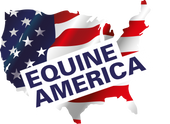Christmas Hazards for Pets

We all love Christmas but this time of year can be a particularly hazardous time for your pets! Our Vets report an increased number of poisonings at this time of year, so what can go wrong?
For cats some of our favourite Christmas plants can be harmful. Mistletoe, holly, ivy and Christmas Cherry can all cause digestive upsets. Poinsettia can also cause mild symptoms. Lilies are more problematic, if a cat eats or licks any part of a lily it can cause kidney failure and sadly death.
Anti-freeze (ethylene glycol) is also extremely poisonous to cats with only a small amount needed to be consumed to be a problem. This can be found in de-icers and screen wash, but also in snow globes.
Cats and dogs are extremely inquisitive and may eat or play with things that you might not expect, such as fairy lights, tinsel, string and ribbon, all of which could cause a foreign body if ingested.
It can also be an added time of stress for them with changes in routine and their environment with visitors to the house.
Dogs love to eat things they shouldn’t, with some breeds having a reputation for this! This might be food, toys, decorations, plants, or even the mouldy contents of the bin, all of which could make them really sick. New toys, may be left unattended and get chewed or eaten, upsetting for all! Some may cause intestinal blockages; batteries can be particularly harmful.
Chocolate is top of the list for dog poisonings at Christmas, with 20% of all chocolate cases reported to the Veterinary Poisons Information Service occurring in December. Theobromine is the toxic component of chocolate and the amount found in chocolate varies depending on the quantity of cocoa solids, with dark chocolate being the riskiest. Chocolate is also toxic to cats, but they need to eat a lot more that a dog would.
Grapes, sultanas, raisins and currants, commonly found in Christmas cake, pudding and mince pies are also poisonous to dogs. Although they only cause renal failure in a minority of cases, it is not possible to predict which dogs will be affected, there is also no apparent dose-response relationship, meaning just one tiny raisin could be poisonous.
Top tips for keeping your pets safe and stress free:
- Ensure all poisonous plants are kept away from your pets.
- Keep chocolate and food safely stored, don’t forget some pets will ‘unwrap’ edible gifts under the tree. Keep left overs out of reach.
- Cooked bones, for example the turkey carcass should not be fed to your pets.
- Ensure they have a safe comfortable place or space of their own to get away from it all.
- Consider plugging in pheromone diffusers to help reduce stress for your pet. Your Vet will be able to give you more advice on this.
- Supervise children, particularly visitors around your pets.
- Human food is not a treat for pets, for example food containing onions, garlic, raisins, macadamia nuts or blue cheese can be toxic.
If you have any concerns about your pet or are concerned they have eaten something they shouldn’t have please contact your Vet immediately for advice.
Wishing you and your pets a Happy and Healthy Christmas!


